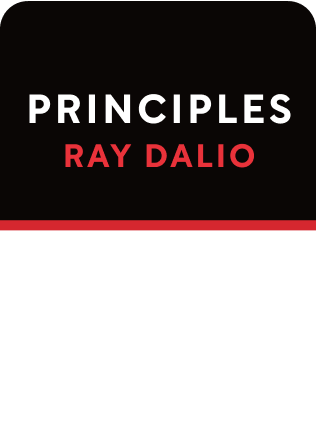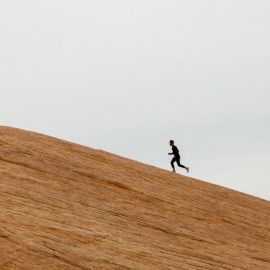

This article is an excerpt from the Shortform summary of "Principles: Life and Work" by Ray Dalio. Shortform has the world's best summaries of books you should be reading.
Like this article? Sign up for a free trial here .
What cooperation skills do you need? How can you use cooperation skills to improve upon team building?
According to Ray Dalio, cooperation skills are an important part of achieving your goals at work. For managers, fostering strong cooperation skills and team building helps companies succeed.
Read more about the best cooperation skills, and why you need them.
Cooperation Skills and Organization Structure
What’s the best structure for an organization, in terms of departments and team structure? And can you learn how to build cooperation with others at work using these ideas? Dalio gives these pointers for organizing teams in order to build coopration skills.
Departmental Construction
- Imagine the ideal organization, and only then choose the right people for it. Don’t take the people you have and then fit an organization to them.
- Build the organization’s departments around goals, rather than tasks.
- Marketing and Client Services should be different departments, even though their tasks overlap. If they merged, their goals would conflict (one is to make sales and another is to take care of existing clients).
- Make departments self-sufficient so they don’t have to requisition resources through bureaucracy.
- Minimize the number of layers in the pyramid.
- Add governance and checks and balances.
- Governance is oversight that removes people and processes if they are failing.
- Even benevolent leaders tend to get more like dictators over time, since they have limited time to make difficult choices. They lose patience with arguments and idea meritocracy, and they issue commands instead.
- The company should have a board that determines if the people running the company are capable. The board can select CEOs but does not micromanage the firm.
- The board’s reporting lines must be independent of the CEO’s reporting lines, to avoid conflict of interest.
- The board must members have the courage to hold people accountable.
- Beware of fiefdoms set up by managers, where personal loyalty to the manager can conflict with loyalty to the organization.
- Governance is oversight that removes people and processes if they are failing.
- Dalio believes a single CEO is not as good as a great group of leaders.
- Thus Bridgewater has co-CEOs and co-CIOs. Recognizing the needs tot make these kinds of changes is part of how you learn how to cooperate with others at work.
Team Building and Collaboration Skills
The following tactics can help you develop cooperation skills and learn how to cooperate with others at work.
- Build from the top down by hiring managers first, who can help build the machine.
- Managers should also be good at what they’re managing, so they can intervene in case their reports aren’t doing well.
- Managers should have high standards so they can recognize problems.
- Different people are good at different parts of the 5-Step Process. Build a team of people who complement each other.
- Some people are visionaries who set the big goals, some are taste testers who perceive the problems, some are detectives who investigate problems, some are designers who create the plan, some are taskmasters who make sure the plan gets implemented.
- Some can do multiple roles well, but no one can do them all well.
- Make each person’s responsibilities clear. People should not jump to responsibilities they don’t own. There shouldn’t be confusion about who’s doing what.
- Have straight single reporting lines that don’t cross.
- Reporting to two people, especially when across different departments, causes confusion, except when reporting to co-heads of the same department.
- Forbid grabbing people from other departments unless first approved by the manager.
- Limit the ratio of manager to direct reports from 1:5 to 1:10.
- Allow escalation when people can’t handle their responsibilities. Don’t treat this as a failure, but rather a responsibility. (Shortform note: This is related to the idea of admitting to your mistakes rather than hiding them.)
- Prevent key man risk by training the next generation of leaders.
- Build a perpetual motion machine that can work well without you. Conversely, no one can be so important that they are irreplaceable. You should always be trying to hire someone who is better than you at your job.
- Every key person should have at least one person who can replace her, just as you have backup parts for machines.
- Expose the next generation of leaders to the thinking and decision making of current leaders. Have the successors do aspects of their managers’ jobs for a while to get vetted.
- Beware of people who don’t cultivate their successors, since they want to hold onto power and want their subordinates to stay dependent.
You can use these cooperation skills to build a successful team that works together.

———End of Preview———
Like what you just read? Read the rest of the world's best summary of Ray Dalio's "Principles: Life and Work" at Shortform .
Here's what you'll find in our full Principles: Life and Work summary :
- How Ray Dalio lost it all on bad bets, then rebounded to build the world's largest hedge fund
- The 5-step process to getting anything you want out of life
- Why getting the best results means being relentlessly honest with everyone you work with






